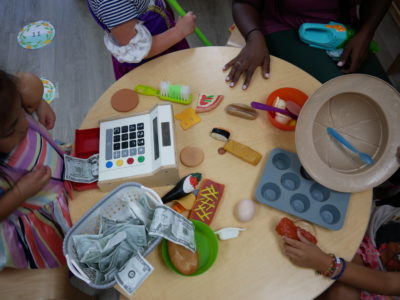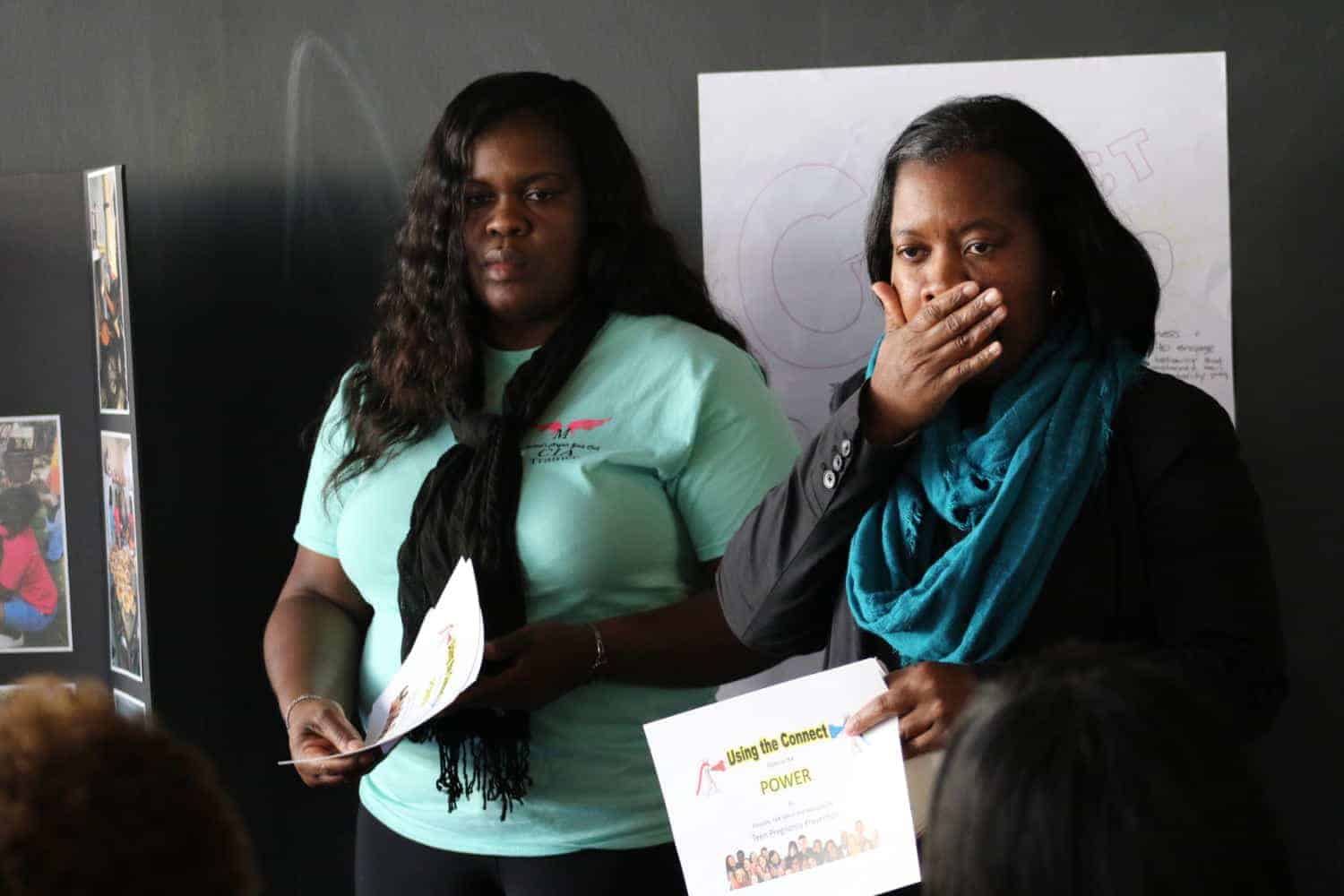With tens of thousands of dollars in new funds, Michael’s Angels Girls Club of Edgecombe County will train trusted adults already connected to teens in the community on healthy relationships, teen pregnancy prevention, and sexual health.
The organization, along with three other community groups, went through four intensive days of training in December to address teen pregnancy. Facilitators from Texas A&M University’s iTP3 project, at the end of the “design thinking” workshop, allocated $80,000 between the groups for projects on awareness and prevention work in the area. Edgecombe County is among the worst in the state for unwanted teen pregnancies.
“We, on a long shot, kind of applied on behalf of Edgecombe, with the hope that they would be excited about coming to a rural community,” said Vichi Jagannathan, Rural Opportunity Institute co-founder. Jagannathan, who researches effects of trauma within the area along with co-founder Seth Saeugling, said the university team picked Edgecombe out of applicants from across the country. The Rural Opportunity Institute is housed within the North Carolina Public School Forum and has been holding meetings with community leaders to find solutions to cycles of poverty and trauma.
Michael’s Angels Girls Club and Project Momentum won $30,000 each through pitching their ideas to a panel of community representatives. The Boys and Girls Club of the Tar River Region and North East Carolina Prep each received $9,000. An extra $2,000 went to Project Momentum to fund a coordinator between the university and all of the groups.
Shanell Knight, director of Michael’s Angels, said the training taught her problem-solving techniques that will extend beyond this project.
“It’s been very intense, very enlightening, very good training,” Knight said. “I’m just glad that we had the opportunity to be here.”
Project Momentum’s pitch was centered around communication between parents and children. The organization’s initiative will train facilitators from the community to talk to groups of parents and their teenagers — separately and then together — on communication skills, abstinence, peer pressure, and preventative measures. The meetings, the group said, will encourage practice at home by giving activities to do together that facilitate open conversations around sex.
The Boys and Girls Club and a group from local charter school North East Carolina Prep are receiving funding to work together in teen pregnancy prevention programing. Kelly Wilson, iTP3’s principal investigator, said the two groups have already started a conversation on how they can best help each other. Wilson said design thinking helps the creation of ideas and programs that are innovative and useful.
“We think that the activities and strategies allow for a lot of fluid and quick program development that changes the frame of the way that a traditional program developer would approach educational and public health programming overall,” she said. “The concept of design thinking really allows the teams that are working on the programs to get insights from the target population and really develop empathy and a human-centered approach to the program.”
The groups interviewed stakeholders who would be affected by their work, came up with user personas to think about needs of individuals, and learned brainstorming and mapping techniques to think of innovative approaches.
Jagannathan was excited for the design thinking approach to come to the area where she has been working and building relationships. After being trained with the same mindset, she previously designed a mobile application in San Fransisco to promote conversations around sexual health among teens.
“What’s cool about all of these organizations is they work I think in closest proximity to actual people,” Jagannathan said. “They all directly serve kids, a lot of them directly serve teen parents or parents. So, what design thinking does is gives specific tools and activities so that they can find ways to learn from those users about what they’re actual challenges are, and their situations, and what they want.”
Amy Robinette, a counselor at North East Carolina Prep, said she was grateful to meet and team up with other organizations doing important work.
“We’ve lived here our entire lives and not known about some of these programs,” Robinette said. “So, the first day, we actually had the conversation about these programs that target specific races or that target specific genders, and how we were missing elements of our county by not acknowledging that this was a very diverse issue. And so the collaboration came immediately.”
Recommended reading




